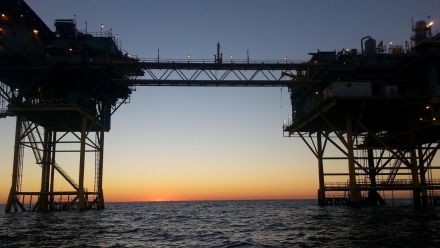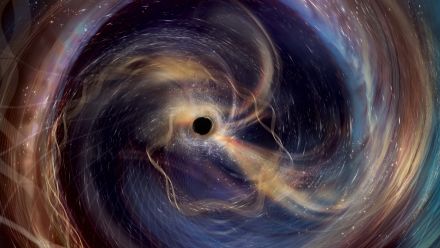Antarctica is at risk of abrupt and potentially irreversible changes to the continentās ice, ocean and ecosystems that could have profound implications for Australia and beyond, unless urgent action is taken to curb global greenhouse gas emissions.
Thatās according to new research published in, from The Ā鶹“«Ć½AV National University (ANU) and the University of New South Wales (UNSW Sydney) in collaboration with each of Australia's major Antarctic research centres and scientists from overseas.
The research highlights the large and abrupt changes unfolding in Antarctica. The team of scientists explain how these changes are āinterlinkedā and have global climate ripple effects, especially for sea levels and ecosystems.
The researchers say the West Antarctic Ice Sheet (WAIS) is at severe risk of collapse. They say its collapse would raise sea levels by more than three metres, threatening the worldās coastal cities and communities.
According to the study's lead author Dr Nerilie Abram, who is the Chief Scientist at the Ā鶹“«Ć½AV Antarctic Division (AAD), such a collapse would have ācatastrophic consequences for generations to comeā.
āRapid change has already been detected across Antarcticaās ice, oceans and ecosystems, and this is set to worsen with every fraction of a degree of global warming,ā said Dr Abram, who carried out this work during her time as Professor of Climate Science at ANU.
āThe loss of Antarctic sea ice is another abrupt change that has a whole range of knock-on effects, including making the floating ice shelves around Antarctica more susceptible to wave-driven collapse. The decline in Antarctic sea ice and the slowdown of deep circulation in the Southern Ocean are showing worrying signs of being more susceptible to a warming climate than previously thought.
āAs sea ice is lost from the ocean surface, it is also changing the amount of solar heat being retained in the climate system, and that is expected to worsen warming in the Antarctic region.
āOther changes to the continent could soon become unstoppable, including the loss of Antarctic ice shelves and vulnerable parts of the Antarctic ice sheet that they hold behind them.ā
Study co-author Professor Matthew England, from UNSW and the ARC Ā鶹“«Ć½AV Centre for Excellence in Antarctic Science (ACEAS), echoed this. He said abrupt changes to Antarcticaās climate and ecosystems could have severe consequences for Australia.
āConsequences for Australia include rising sea levels that will impact our coastal communities, a warmer and deoxygenated Southern Ocean being less able to remove carbon dioxide from the atmosphere, leading to more intense warming in Australia and beyond, and increased regional warming from Antarctic sea ice loss,ā Professor England said.
Changes to the Antarctic environment could also have devasting consequences on the regionās wildlife and ocean ecosystems.
āThe loss of Antarctic sea ice brings heightened extinction risk for emperor penguins, whose chicks depend on a stable sea ice habitat prior to growing their waterproof feathers,ā Professor England said.
āThe loss of entire colonies of chicks has been seen right around the Antarctic coast because of early sea ice breakout events, and some colonies have experienced multiple breeding failure events over the last decade.ā
According to the researchers, krill and other penguin and seal species are also at risk, while keystone phytoplankton species are becoming increasingly affected by ocean warming and acidification.
āAnother potential risk is a collapse in the Antarctic overturning circulation, which would mean vital nutrients remain at the seafloor, instead of being recirculated back to the surface where biological systems, including marine animals, depend on them,ā Professor England said.
Dr Abram said it was clear that existing efforts alone, such as the Antarctic Treaty System, wonāt be enough to protect ecosystems.
āWhile critically important, these measures will not help to avoid climate-related impacts that are already beginning to unfold,ā she said.
āThe only way to avoid further abrupt changes and their far-reaching impacts is to reduce greenhouse gas emissions fast enough to limit global warming to as close to 1.5 degrees Celsius as possible.
āGovernments, businesses and communities will need to factor in these abrupt Antarctic changes that are being observed now into future planning for climate change impacts, including in Australia.ā
The international research team included climate experts and scientists from institutions in Australia, South Africa, Switzerland, France, Germany and the United Kingdom.
was led by the Ā鶹“«Ć½AV Centre for Excellence in Antarctic Science (ACEAS) in collaboration with Securing Antarcticaās Environmental Future (SAEF), the Ā鶹“«Ć½AV Antarctic Program Partnership (AAPP) and the Ā鶹“«Ć½AV Antarctic Division (AAD). The research contributes to delivering the .


